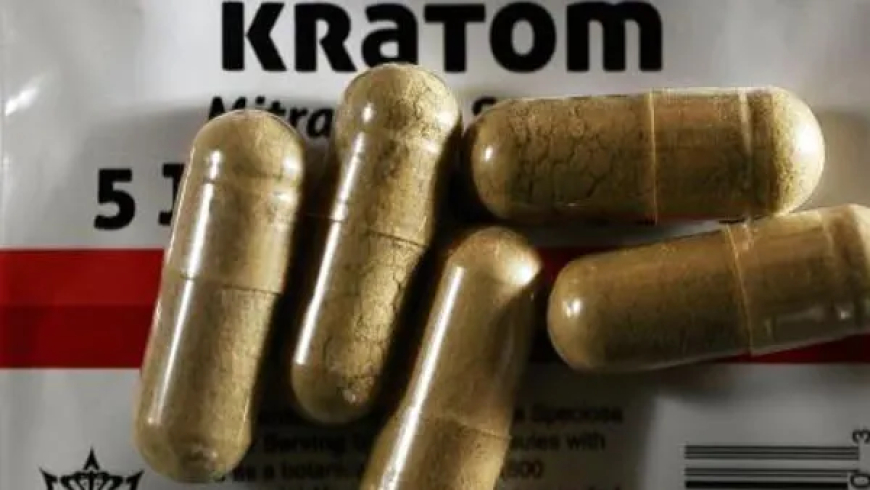Kratom at Tampa Bay Kava Bars: A Local Trend Thrives Amid FDA Crackdown
Despite the FDA’s warning on kratom, Tampa Bay kava bars continue serving kratom tea. Explore how local tolerance, culture, and health rules shape this emerging trend.

This month, as the U.S. Food and Drug Administration (FDA) ramps up its crackdown on kratom products, a curious trend persists in the Gulf Coast corridor—kratom tea remains available at select kava bars across Tampa Bay. Patrons there describe it as a mild mood enhancer, not a high-risk intoxicant. But how does this local acceptance align with the federal regulatory push?
This article explores how — as the FDA raises safety alarms nationwide — local laws, consumer demand, and cultural traditions continue to shape kratom’s place in Florida’s social scene.
Kratom in Tampa Bay: A Growing Niche in Kava Culture
Over the past year, kava lounges in St. Petersburg, South Tampa, and Clearwater have quietly added kratom tea to their menus. Unlike the hallucinogenic connotations often associated with kratom by federal regulators, local bar owners accentuate its sociable, relaxing effects.
“Our kratom tea is strictly a chill, herbal thing — nothing like what the FDA warns about,” says Marcus Lewis, manager of Pacific Shores Kava in St. Pete. “Customers come in for stress relief, not a buzz.”
Kava bars have built reputations on providing safe, community-oriented spaces for herbal relaxation. Introducing kratom is seen as a natural extension—especially among customers seeking alternatives to alcohol or mainstream painkillers.
FDA Warnings: A Nationwide Safety Campaign
On July 15, 2025, the FDA issued a stark warning, stating kratom is "linked to serious harm including liver injury, seizures, and death" and urging states to regulate or prohibit its sale. They cited overdose patterns, interactions with other substances, and inconsistent dosing as areas of concern.
Additionally, the administration launched enforcement actions against untreated kratom extracts and targeted unlicensed online sellers.
While the FDA emphasized concerns, it did not outright ban kratom, leaving state and local jurisdictions to interpret the risks and enforce regulations—or not.
Florida Law and Local Oversight
Unlike some states that have enacted outright bans or high taxes on kratom, Florida lacks statewide restrictions on its possession or sale. Instead, local health departments retain authority to regulate novelty or herbal products on a shop-by-shop basis.
In Hillsborough County, health inspectors have conducted voluntary reviews of kava bars. None have reported adverse reactions tied to kratom in the past year, nor have they cited violations—so long as bars clearly label kratom products and ensure patrons are of legal age.
Tampa’s health officer, Dr. Elena Martinez, explains:
“We monitor for complaints. To date, the cases have been extremely rare. Our approach is one of cautious observation, not prohibition.”
From Customers: A Tale of Options and Awareness
Maria Lopez, a Tampa Bay native, tried kava years ago and now opts for kratom occasionally.
“It’s milder than alcohol or prescription pain relievers,” she says. “I don’t want a party vibe—just calm company with friends.”
Many patrons indicate they appreciate the transparency of kava bars, where dose sizes are controlled and staff advise moderation.
The Divide: Awareness Versus Autonomy
Herein lies the tension: the FDA frames kratom risks through a public health lens, while local users frame it through personal well-being and access.
If serious incidents become public — through poisoning centers or hospital admissions — local officials may follow federal models and tighten access.
Looking Ahead: Regulation or Reinforcement?
Should federal and state oversight intensify following the FDA’s strong messaging, Tampa Bay kava bars could face stricter licensing, mandatory educational materials, or even bans. However, as of August 8, 2025, they remain operational — balancing consumer demand with community responsibility.
Conclusion
Kratom’s continued availability in Tampa Bay kava bars reflects one key truth: when local culture, consumer choice, and the lack of state-level regulation collide with federal safety campaigns, the result is a unique in-between scenario. For now, herbal enthusiasts sip quietly—watching closely to see whether this local custom will bend under external pressure or withstand scrutiny.











